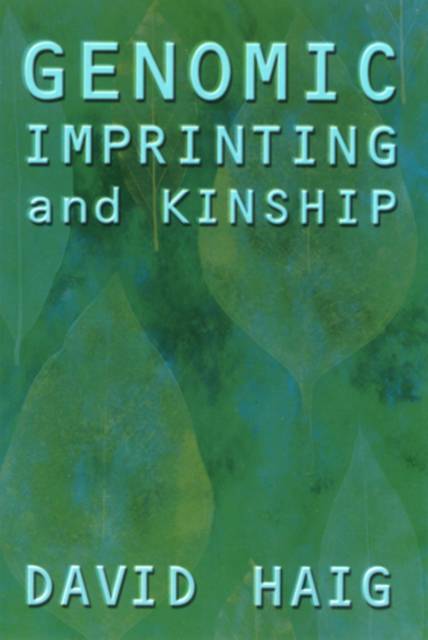
- Retrait gratuit dans votre magasin Club
- 7.000.000 titres dans notre catalogue
- Payer en toute sécurité
- Toujours un magasin près de chez vous
- Retrait gratuit dans votre magasin Club
- 7.000.000 titres dans notre catalogue
- Payer en toute sécurité
- Toujours un magasin près de chez vous
70,95 €
+ 141 points
Description
Until twenty years ago we had no idea which of our genes came from our father and which came from our mother. We took it for granted that our genes expressed themselves identically and that there was a 50/50 chance that they came from either parent. We also assumed that they worked in cooperation with each other. The biggest breakthrough in genetics in the past two decades has been the discovery of genomic imprinting, which allows us to trace genes to the parent of origin. David Haig has been at the forefront of theorizing these developments. He argues that these "paternally and maternally active genes" comprise less than one percent of our total gene count and are far from being cooperative. In fact, they have been shown to be in competition with one another. If Haig's theory holds true, imprinted genes exemplify an extraordinary within-individual conflict, while shaking up our fundamental ideas of what it means to be an individual. This collection of Haig's papers represents a unique comprehensive overview of the state of evolutionary biology. The pages are linked by a commentary that provides background, and brings readers up-to-date on developments that occurred after the paper's original publication. Since genomic imprinting touches on many areas in the life sciences, including evolutionary biology and developmental genetics, Haig's work is scattered through the literature. This volume brings his work together for the first time. A volume in the Rutgers Series in Human Evolution, edited by Robert Trivers. David Haig is an associate professor of organismic and evolutionary biology at Harvard University.
Spécifications
Parties prenantes
- Auteur(s) :
- Editeur:
Contenu
- Nombre de pages :
- 238
- Langue:
- Anglais
- Collection :
Caractéristiques
- EAN:
- 9780813530277
- Date de parution :
- 01-12-01
- Format:
- Livre broché
- Format numérique:
- Trade paperback (VS)
- Dimensions :
- 155 mm x 234 mm
- Poids :
- 408 g







